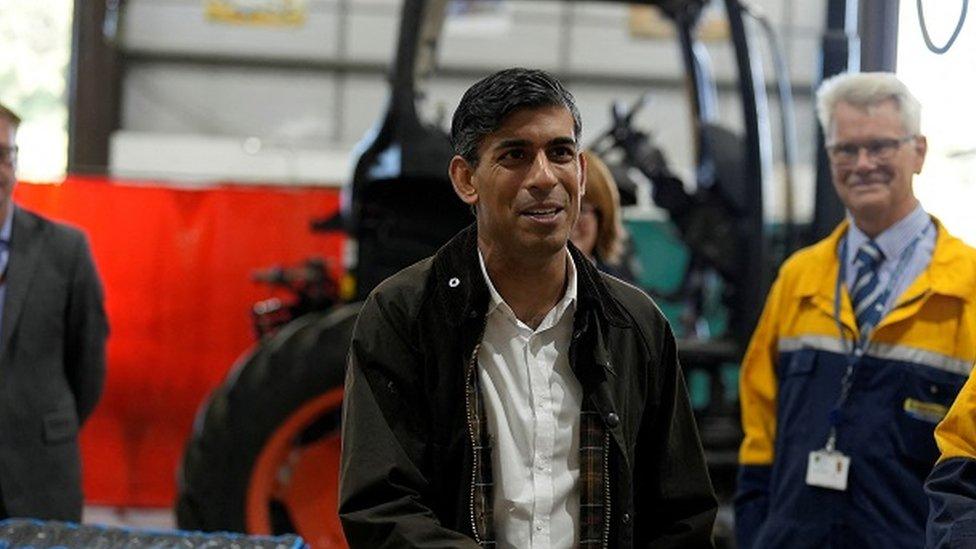Rishi Sunak could limit 20mph zones to target driver vote
- Published
- comments
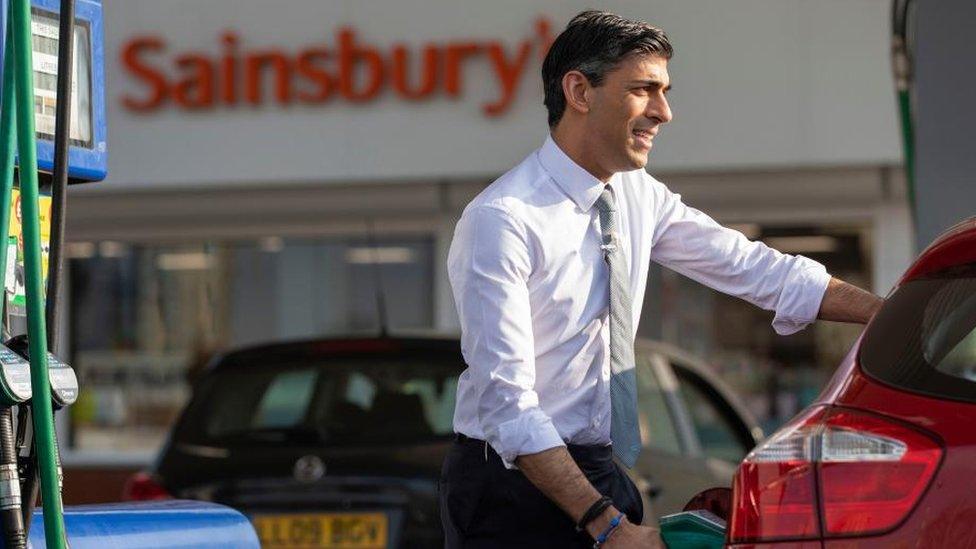
Rishi Sunak is set to unveil policies aimed at drivers - including possible limits on the powers of councils in England to impose 20mph speed limits.
An announcement is expected at the Conservative Party conference which gets under way at the weekend.
The Tories have started setting out their policy programme ahead of next year's general election.
Labour said Tory councils had brought in 20mph zones across the country, promoted by the transport department.
Shadow transport secretary Louise Haigh added: "Rishi Sunak desperately poses as the friend of motorists but the Conservatives have hammered motorists - with petrol prices soaring and insurance costs rocketing.
"The prime minister personally slashed the pothole budget by enough to fill eight million of them."
Labour says it believes, in many areas, people support lowering speed limits because it improves road safety, particularly around schools and in residential areas.
Reports about the government's plans have angered cycling and walking campaigners.
A joint statement by the chief executives of Bikeability Trust, British Cycling, Cycling UK, Living Streets, Ramblers and Sustrans said: "When ministers could be promoting public transport, cycling and walking as cheap sustainable options in a cost-of-living and climate crisis, they're entrenching congestion and reliance on driving for short local journeys.
The statement added: "This is a plan that looks no further than one way of travelling and will make the roads worse for those occasions when people do need to drive."
However, the reports were welcomed by Conservative MP for South Cambridgeshire Anthony Browne.
He told BBC Radio 4's Today programme there was a "trend of wanting to impose restrictions and penalties on motorists that are essentially punitive and not pragmatic, essentially ideological".
Mr Browne said there was obviously a case for low-traffic speeds in some locations, such as outside schools, but he said the situation in Wales, where speed limits have been reduced from 30mph to 20mph in built-up areas, was "punitive" against motorists.
The expected government announcement, first reported by the Guardian newspaper, external, could also include proposals to limit the ability of councils in England to use number plate recognition cameras to fine motorists for traffic violations.
Other reported plans include restricting the number of hours a day that car traffic is banned from bus lanes.
A Department for Transport spokeswoman said the reports were "speculation".
Wales limit
Earlier this month Wales became the first country in the UK to reduce speed limits from 30mph to 20mph in built-up areas.
Welsh ministers said the move would reduce deaths and noise and encourage people to walk or cycle but it has provoked a backlash from some drivers.
Simon Williams, from motoring organisation the RAC, said: "While we support the use of 20mph limits being used where they are needed most, such as outside schools, on residential streets and in urban areas where there are lots of pedestrians, implementing them in widespread fashion may unnecessarily lengthen journey times by slowing down traffic, and possibly even increase congestion."
Nicholas Lyes, from the road safety charity IAM RoadSmart, said 20mph zones "have a role to play" but the "proliferation of blanket limits without physical changes to road layouts means compliance is often poor".
Local authorities are "usually best placed" to decide the location of the zones but there "is an argument" to strengthen guidance on how that happens, he added.
A 2018 study commissioned by the Department for Transport, external found 20mph speed limits in residential areas were supported by the majority of residents and drivers.
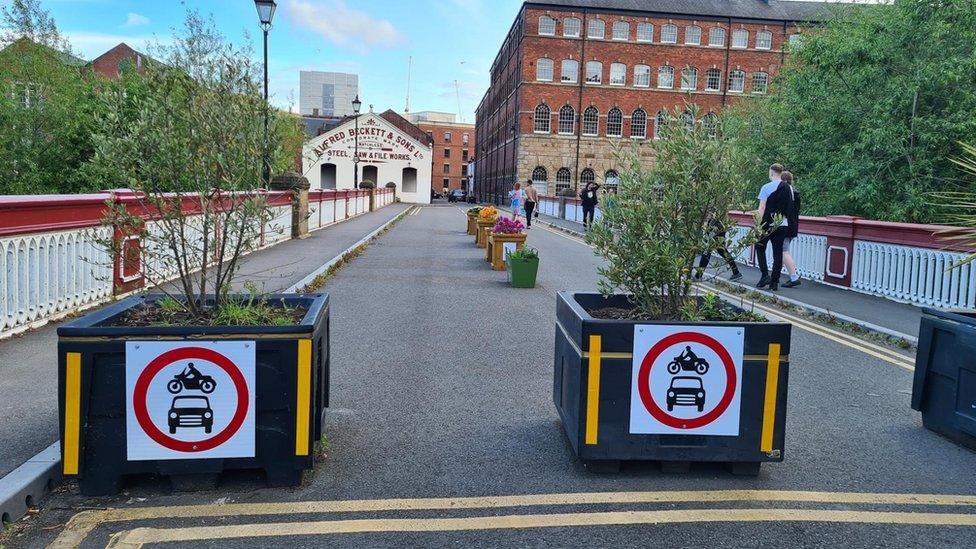
The prime minister has already ordered a review of low-traffic neighbourhoods in England
After the Conservatives managed to hold on to the seat of Uxbridge and South Ruislip in July's by-election, Mr Sunak has sought to present himself as on the side of drivers.
The result was widely attributed to public anger over the expansion of the Ultra Low Emission Zone (Ulez) charge on the most polluting vehicles to outer London, which the Tories made central to their campaign.
Last week the prime minister announced he was delaying a ban on new petrol and diesel cars from 2030 to 2035.
In July Mr Sunak also ordered a review of low-traffic neighbourhoods (LTNs) in England.
LTNs aim to reduce traffic and encourage people to walk or cycle more, in part by preventing drivers using quieter residential roads.
It is not clear how much of what Mr Sunak is likely to promise can actually be delivered, as many of these powers reside with local government, not Whitehall.
Local authorities currently have responsibility for all roads apart from motorways and major A roads.
But it is the broad message - that the PM is on the motorists' side - that Downing Street wants people to hear.
The Conservatives are lagging far behind in the opinion polls and they are attempting to grab the attention of traditional core voters, as well those who have turned their back on the party.


What questions do you have about these possible proposals to support motorists?
In some cases your question will be published, displaying your name, age and location as you provide it, unless you state otherwise. Your contact details will never be published. Please ensure you have read our terms & conditions and privacy policy.
Use this form to ask your question:
If you are reading this page and can't see the form you will need to visit the mobile version of the BBC website to submit your question or send them via email to YourQuestions@bbc.co.uk, external. Please include your name, age and location with any question you send in.
Related topics
- Published21 September 2023
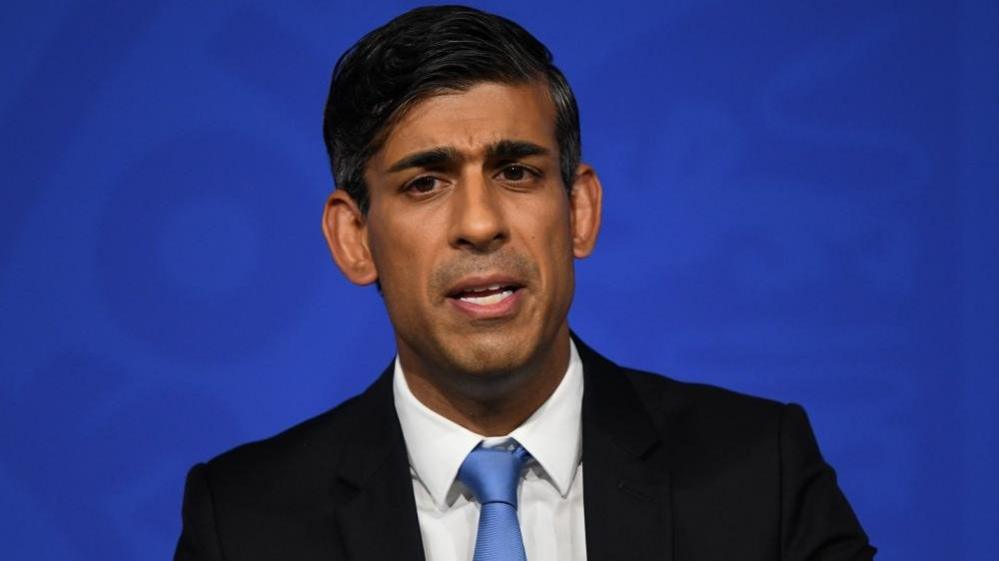
- Published30 July 2023
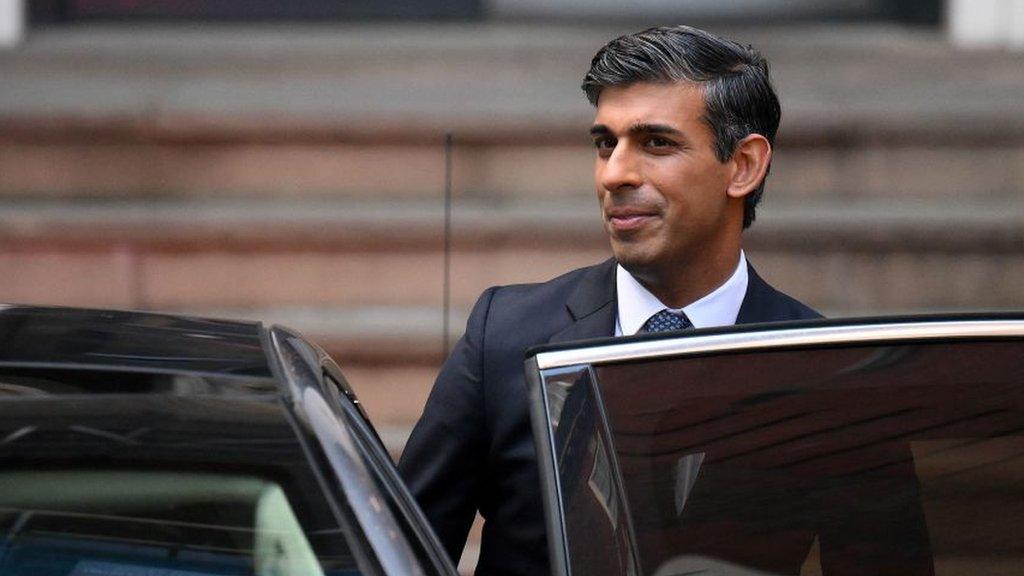
- Published29 September 2023
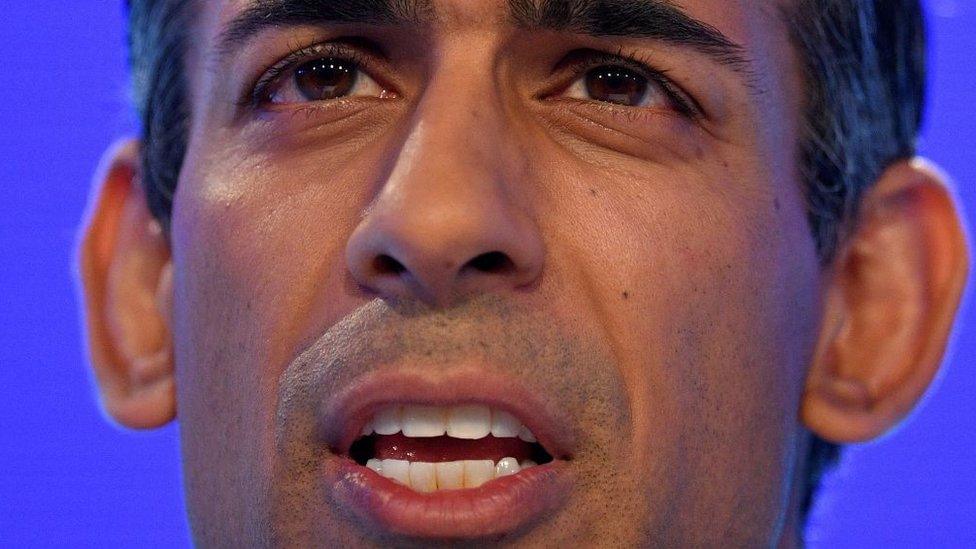
- Published21 September 2023
